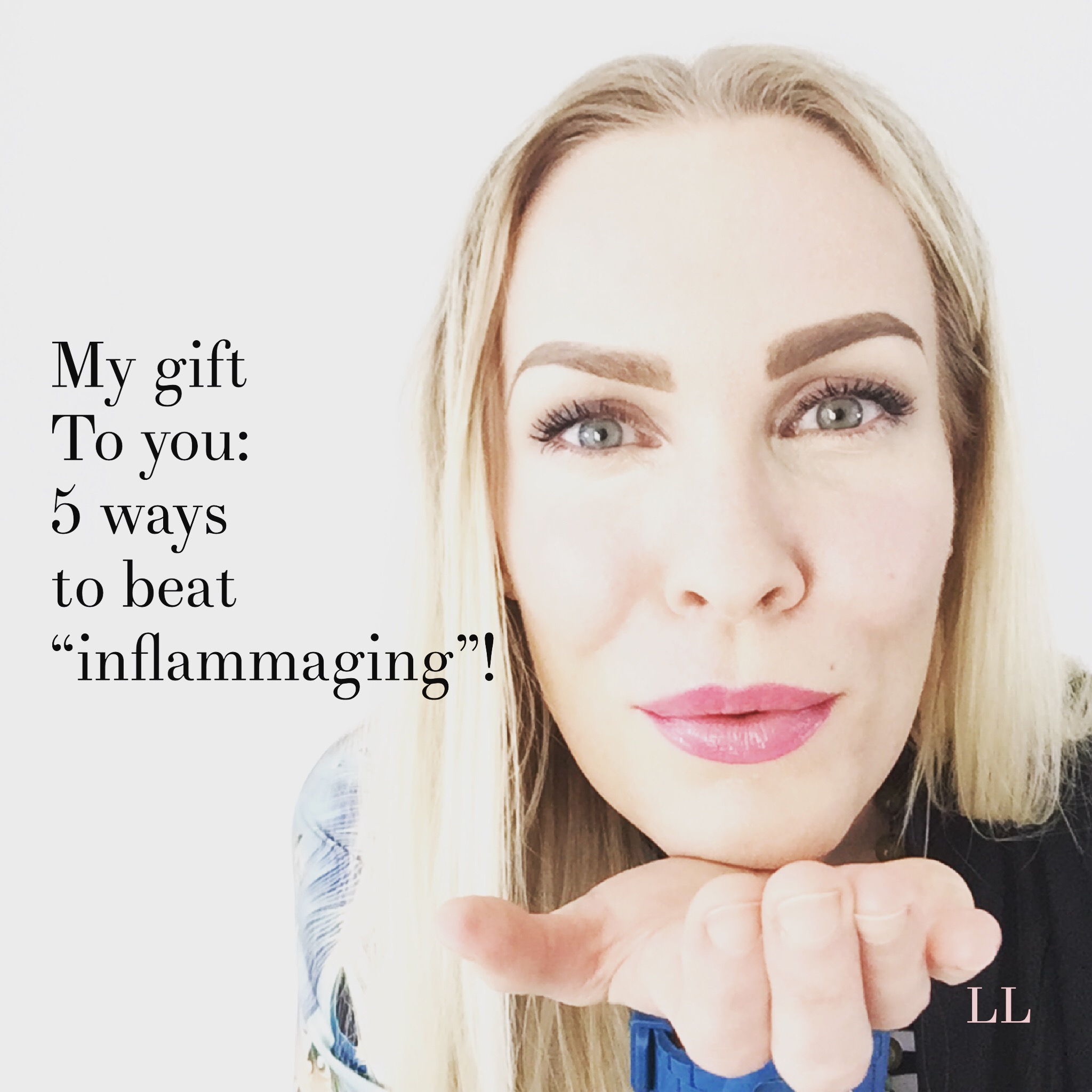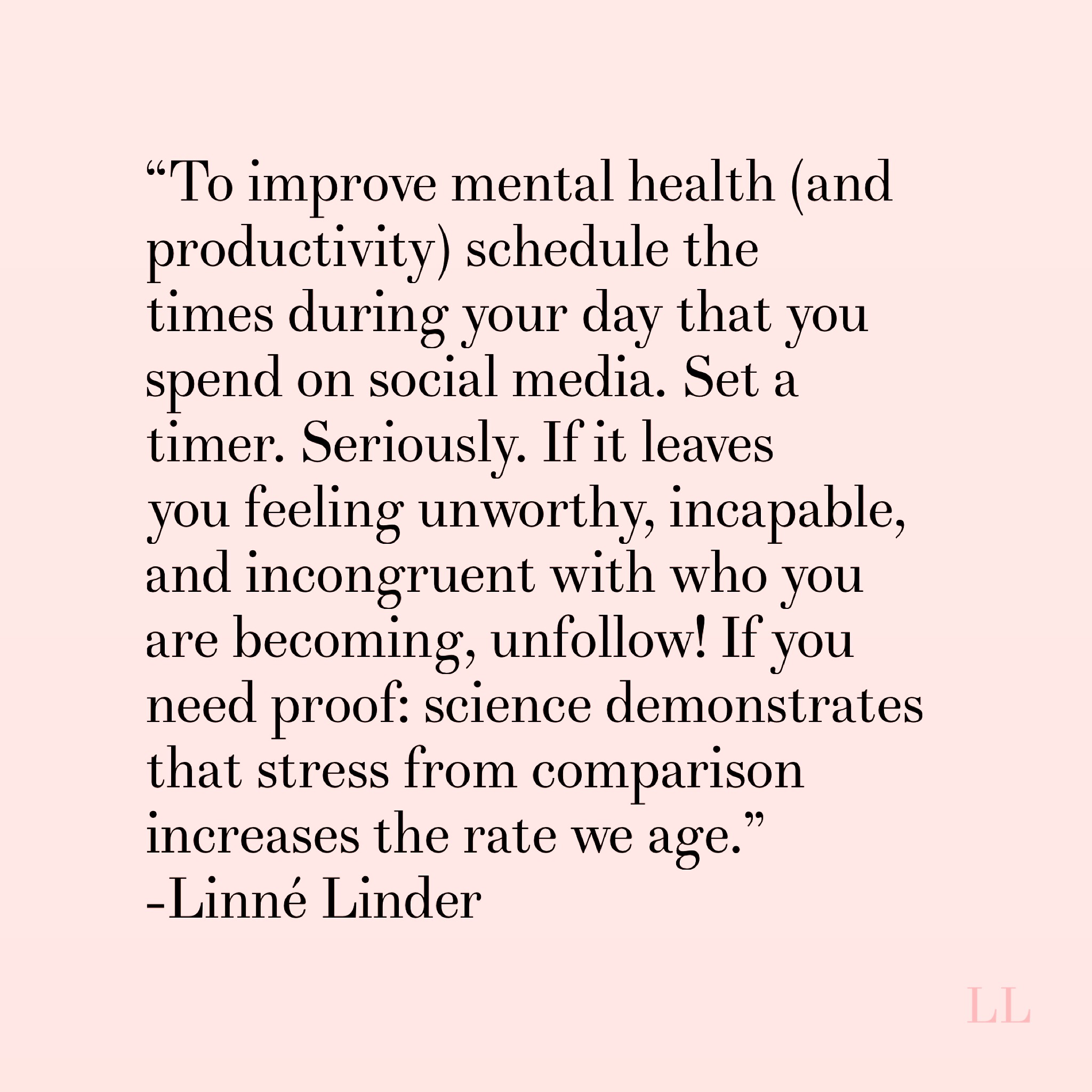SUMMARY:
In today’s post, I want to discuss the effects of inflammation on the aging process. Short term, inflammation is necessary for healing. When we understand the effects of inflammation on our overall health, we can circumvent the negative side effects of chronic inflammation on the genetic expression of our cells.
Here is the thing. Our lifespan is increasing; however, our disease span is increasing with it and this phenomenon is becoming an epidemic. In this post, I discuss the signs slated to inflammation, the causes of inflammation, and the 5 best scientifically-proven methods to combat age-related diseases. I think you’ll get a lot out of this post!
FULL TRANSCRIPT:
Hello, fellow lifestyle enthusiasts! Welcome back for another post on improving your health, wellness, and lifestyle! If you are new, I’m Linné and I help overwhelmed and possibly a little out of shape folks to supercharge your health and to simplify your lifestyle so that you can live and love your best life! If you are interested in videos that inspire simpler and healthier living then you’re in the right place!
RECAP:
We’ve been discussing the different stages of stress, the physiology, and some of my best tips to help you better deal with your stress. We’ve also discussed cortisol and its effects on weight and aging. So, I’ll link that playlist HERE for you if you’d like to go back and check them out.
INFLAMMATION THE EFFECTS ON AGING:
In today’s post, I want to discuss the effects of inflammation on the aging process. When we understand the effects of inflammation on our overall health, we can circumvent the negative side effects of chronic inflammation on the genetic expression of our cells.
Here is the thing. Our lifespan is increasing; however, our disease span is increasing with it. This phenomenon is becoming an epidemic. Our chronological age is the number. Our biological age is the cellular state of our bodies that can be older or younger than the chronological number. So in essence, you can be 50 years old and have cells that are thriving in a 30-year-old state. Conversely, you can have cells that are suffering in an 85 years old state, depending on the health of your chromosomes. While there are a few folks that have the FOXO gene that is known for longevity (1-2% of the population), what about the rest of us? Is the rest of the population doomed?
The rest of us do run the risk of living later with less vitality. Inflammaging is a term that was coined by Claudio Franceschi in the early 2000s. He made the link between inflammatory markers and aging. He discovered that chronic low-grade inflammation is associated with age-related morbidity (sickness) and mortality (death). Inflammation is closely linked to telomere length (the shoelace caps at the end of chromosomes) and causes shortening of the chromosomes. It is your telomere length that ultimately determines your biological age.
SIGNS:
The typical signs of inflammation are heat, pain, redness, loss of function, and swelling. There are both acute and chronic forms. Acute is life-saving and necessary. For example, healing from a paper cut is an acute inflammatory process. Even exercise is acute inflammation and a beneficial stressor on the body. Conversely, low-grade chronic inflammation is the enemy of aging. If left unattended, low-grade chronic inflammation can lead to cancer, decreased immune activity, loss of mobility, increased weight, a decline of cognition, and the dreaded chronic diseases such as cardiovascular disease and diabetes mellitus.
CAUSES:
Inflammation is caused by pro-inflammatory cytokines that are released with infection and are necessary for recovery. Cytokines are the protein molecules that our immune cells use for communication. Too much inflammation can turn on negative gene expression caused by activity of pro-inflammatory cytokines; and therefore, turn on the NF kappa B pathway. This negative pathway can be activated by over 150 stimuli such as UV radiation, viruses, carcinogens, cytokines, bacteria, etc. Because NF kappa B alters gene expression in the cell, the negative pathway results in the formation of inflammatory proteins and supports more chronic inflammation. And to make matters worse, NF kappa B is responsible for activating over 400 different negative gene expressions in the body.
HOW IS NF-KB ACTIVATED?
What turns on the pro-inflammatory cytokine activity? Accumulation of waste and toxins, oxidative stress from free radicals, genetics are the big causes. Lifestyle causes include smoking, obesity, foods, inactivity, stress, hormone imbalance.
A huge contributing factor to pro-inflammatory pathways in the body is an imbalance of gut bacteria. Dietary increases in omega 6 fatty acids (from soy, corn, vegetable, oils, safflower, canola oils, etc.) can cause this imbalance. Likewise, reduced intake of omega 3 fatty acids (from nuts, fish, plants, etc.) will also cause an imbalance. Advanced glycation end products (known as AGES) from overheating foods and processed foods will also cause the body to prefer the negative inflammatory pathway.
In opposition of NF-kappa B, the NR-f2 pathway decreases inflammation, rids the body of carcinogens, and activates 200 genes that fight oxidative stress. Activating the NR-f2 pathway leads to more vibrancy, vitality, and decreased inflammation.

THE FIX:
There is hope to turn things around.
- STICK TO A WHOLE FOODS DIET (THE MOST IMPORTANT THING). Avoid all inflammatory oils (the omega 6 oils aforementioned above). Avoid sugar and all processed foods. Eat plenty of good fats like avocado, fish, coconut, olive, macadamia nut oil, MCT oil, etc. Eat more wild caught fish. Supplement your diet with probiotics, fermented foods, seaweed, nuts, broccoli sprouts, algae, turmeric, and green tea, etc. All of these foods stimulate the beneficial NR-f2 pathway. Turmeric or curcumin not only activates this pathway but it decreases the bad pathway as well. Vitamin D positively regulates over 200 genes in the body so it plays an important role in proper gene expression. Increasing other nutrients such as calcium and magnesium can be beneficial. MCHC s a form of calcium necessary for bone rebuilding and magnesium glycinate and L-threonate are my favorites for improving stress resilience. Avoid proteins that are pro-inflammatory by limiting meat, dairy, eggs. Of course, if you eat these, make sure that your red meat is grass-fed and that any eggs and dairy are organic and pasture-raised sources.
- EXERCISE CORRECTLY. Exercise increases telomere length and decreases stress which will decrease inflammation in the body. The best types of exercise get the heart rate up but not for too long. High-Intensity Interval Training (HIIT) increases telomere health. The more you avoid sitting, the more you increase telomere length. Believe it or not, moderate exercise for just 10 minutes a day, that breaks a sweat, is sufficient.
- SLEEP QUALITY VERSUS QUANTITY. Turn off all electronic devices 60 minutes before bed. Blue light from electronic devices will suppress melatonin production. You can use the “f.lux” application and blue light blocking glasses to protect yourself from the blue light. As you may already know from my previous posts, lack of sleep shortens telomere length!
- MINDFUL LIVING. Research supports meditation and its effects on inflammation in the body as it reduces inflammatory markers and increases telomere length. It slows down neuro-aging and cognitive decline. In addition to medication, your attitude throughout the day is everything! How you respond to stress determines the outcome. You can choose to see stressors as a threat or a challenge. Even an ego threat (worrying about what others think) can increase inflammatory responses and cytokine activity in the body. Therefore, emotional stress impacts physical responses and the aging process. This is why meditation and psychological reframing is necessary to decrease the stress response. One of the best methods to help you with this is called the Cognitive Diffusion Technique. This technique encourages you to have more compassion when replaying your past records. For example, you can say to yourself, “If I would have known better, I would have done differently. I’m doing the best I can.”
- REBOOTING. Regular detoxification is necessary for cleaning your genes. You can do this with water fasting, preferably with a medically-assisted program. You can try time-restricted eating within an 8-10 hour window per day (known as intermittent fasting. My personal favorite is to use a medical grade detoxification protein powder and a whole foods diet for 2-3 weeks, once per quarter.

WANT TO RESEARCH MORE?
Elissa Epel and Elizabeth Blackburn at UCSF have been pioneers in the research linking telomere length to aging and they discuss ways to increase telomerase activity. If you want to read more, grab The Telomere Effect. You can also take personal assessments over at www.amecenter.ucsf.edu.
WHAT NOW?
I’ll bet you’re a little bit like me: you like to learn new information; but, you’re not sure where to start (and how much you will actually do). Keep in mind that there are two types of people: those who hear information and move forward without taking any action and those who act upon good advice. Do me a favor.. just pick one area that you know you need help (i.e. increasing whole foods, decreasing omega 6 fatty acids, improving your sleep hygiene, exercising more intentionally, meditating, and including gentle detoxification in your annual routine). Use this ONE choice as your monthly challenge this month!
And, as always, strive to supercharge your health by simplifying your lifestyle so you can satisfy that lovely soul of yours!
Don’t forget to leave a comment down below and let me know which ONE thing you are going to do to improve your gene expression! Share this post with someone you know that is working toward improving their health. Let me know if you have any questions. I would love to hear from you!
All the best to you my friend,
Dr. Linné

